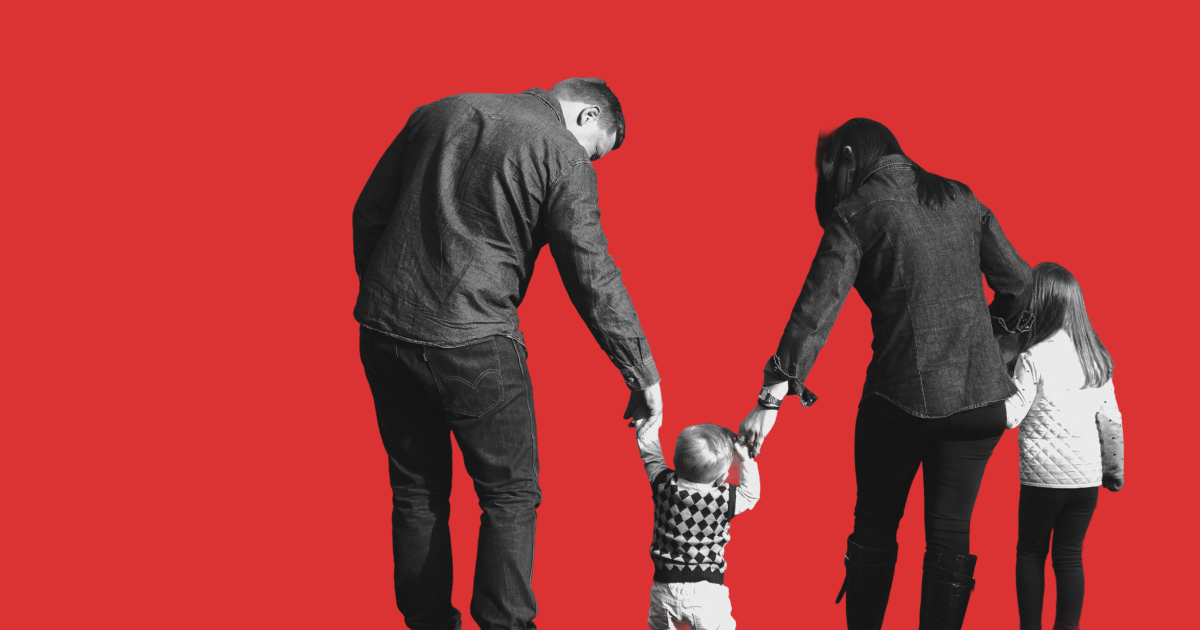“I believe that children are our future” sang the late great Whitney Houston in her hit cover Greatest Love of All. Forty years later, it would seem the United Kingdom, joined by many other Western countries, has given up on that belief.
Glancing through recent reports by the Office for National Statistics, we are told we’ve simultaneously reached a record low birth rate (1.44 children per woman) and a record high number of conceptions ending in abortion (29.69%) in England and Wales.
And yet, amidst such news of civilisational decline, University College London research revealed “parents have higher life satisfaction than people without children”. Such a headline begs the question: why then are we not having more children as a nation?
Many attribute fault to the Government’s lack of support for families, and they are not entirely wrong. In a country which caps our already diminutive Child Tax Credit to two children, and where the cost of living and property ownership come at a jaw-dropping expense, one is hardly incentivised to have children.
Nevertheless, while such circumstances certainly don’t help, the argument doesn’t hold much water when examined against countries with far lower GDPs and poorer living conditions, yet boasting some of the highest birth rates. No, arguably the problem stems not from a place of financial pressure, but rather from a societal rewiring born out of our affluence.
“The love of money is the root of all evils”, St Paul famously wrote in 1 Timothy. Why? One could say it is because it is the great liberator. Of course, this is not inherently negative. Economic successes of the past century have brought about previously unimaginable accomplishments in tackling hunger, disease and education.
However, as richer nations began to forget their Christian inheritance, their prosperity lost its grounding in wisdom and the ordo amoris. Money now exists for its own sake, not for the flourishing of people. Furthermore, productivity goals have reduced people’s value to the sum of their utility, and as such the immeasurable aspects of human relationships have been lost by the wayside.
This breaking down of the social contract can be seen all around. Those blessed with much no longer feel a duty towards those who go without — “the benefits system will sort them out”. Likewise, parents no longer feel reliant on having children to provide for them in old age — “the state pension will sort us out”.
Alongside our wealth, we have decided to centre our nation on the ideal of boundless freedom. Family life — from which the rest of society proceeds — saw its great revolution in the 1960s with the arrival of the contraceptive pill, which divorced, for women, sex from motherhood. And with their newfound liberty, women were ushered from the ‘slavery’ of their marriages to the ‘freedom’ of the workforce, as Chesterton observed almost prophetically decades prior.
The true fruit of the tree of affluence and freedom? Boundless misery, it would seem. In 2025, we find ourselves in the depths of a ‘loneliness epidemic’, which is hardly surprising considering the trinity of ‘me’, ‘myself’ and ‘I’ have become the summum bonum towards which we orient our entire existence. And yet, tapping into the cultural milieu, it would seem we are none the wiser as to how we got here, nor how to find our way back.
The problem here is that our narrow definition of freedom doesn’t account for cost. Much like Bonhoeffer’s ‘costly grace’, actual freedom “is costly because it costs a man his life”, and yet, in return, it “gives a man the only true life”. A freedom that requires nothing from you is hardly freedom at all — it is simply slavery to the whims of your passions, a one-way street journeying deeper into the hell that is living solely for oneself.
When questioned as to why parents might have a higher life satisfaction, the study’s co-author, Professor Morag Henderson, said “in other literature parents report having greater meaning and more fulfilment in life, even with some of the daily stressors that might come along with being a parent”.
Speculation here can be confirmed as fact by virtually any parent you meet. Caring for the mental, physical and spiritual wellbeing of your children is guaranteed to be one of the hardest endeavours you ever set out to do. The pressure of the task is felt all the more when performed in the world we find ourselves in today. And yet it is precisely from this place of challenge that meaning and purpose are found.
The report goes on to double down on its findings, stating “males who did not want children reported the lowest life satisfaction.” Sadly, when placed against research that found suicidal men most frequently cite feeling “useless” or “worthless” as their reason for wanting to take their own lives, this hardly comes as a surprise.
The truth is, being made in the imago Dei, we are built for relationships. Those relationships can be very hard, and perhaps even reach their peak difficulty in parenting. Nevertheless, it is in the act of laying down our lives that most of us find our worth, our use, our very purpose.
Upon finding out that my wife was pregnant, the rollercoaster of emotions — switching between joyful celebration of a new life and mourning the end of our own — feels comical on reflection. In many ways, I was right in my lamentation. I learned I had to die in order to make room for a man. A man who would be worthy of being called “daddy” by his son and daughter. A man willing to lose it all, even his own life, for them.
Houston also sang that “learning to love yourself…is the greatest love of all”. Christ teaches otherwise, saying, “Greater love has no man than this, that a man lay down his life for his friends.”

















